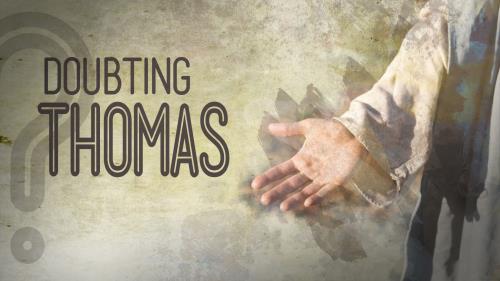-
Creator Of Heaven And Earth Series
Contributed by Lori Broschat on Nov 28, 2017 (message contributor)
Summary: Examining the first part of the Apostles Creed concerning God
CREATOR OF HEAVEN AND EARTH
A scientist approaches God and says to Him, "God, we don't need You anymore. Science has finally figured out a way to create life out of nothing. We can now do what You did in the beginning." "Oh, is that so?" replies God. "Yes," says the scientist, "We can take dirt and form it into a human likeness, and breathe life into it, thus, creating man." "Well, that's very interesting," God said. "Show Me." So the scientist reaches down, grabs a handful of dirt, and starts to mold the soil into the shape of a man. "No, no," interrupts God, "Get your own dirt!"
It’s funny the things you discover while you are preparing a sermon. Trying to focus my attention on God the Creator led to research on Genesis 1 and learning the various theories of the age of the universe and the process of creation. In reading Genesis 1:1-2 more closely it does seem to indicate that there was something there, in the beginning. There is water, earth, and darkness mentioned in those verses. There was also chaos and confusion, which still continues to this day among those who argue creationism versus evolution.
For example, the gap theory states that the familiar “in the beginning” that we all know as the start of creation is actually a restart after the fall of Satan and the ensuing destruction of the first creation. This is just a theory, of course, because it’s impossible to derive too much from two lines of Scripture in a non-historical book like Genesis with its two creation stories. These chapters were not written in terms of modern science, but neither were they written in what would have passed for science in ancient times.
The pursuit of such matters takes us off the track and poses the problem of missing the point. The point is that God’s first role with respect to human beings is as Creator. This is one of the ways He is identified in the Apostle’s Creed. In the creed God is given only one statement out of twelve, but as God maybe that’s all He needs in order to be known. We call God by many names, but the composers of this creed chose a relational term and an occupational term.
Father is a relational term of being, yet also of action, and Creator is an occupational term of action, yet also of being. These are two parts of God’s nature, and God must always be understood in relationship. The Father is, and the Creator does. Both have something to do with us, so both should be acknowledged. Let’s take this statement piece by piece.
We believe in God. In the case of Genesis 1, the word is Elohim, which is a way of speaking of God’s majesty, sovereignty, and power. In Genesis 2, the word used for God is Yahweh, His personal name. God goes by many names, attributes, actions, and images. He makes Himself known in ways that are both powerful and personal. He might be Redeemer, or King, or Sustainer, or Comforter or Holy One.
Or Father. That’s how Jesus referred to Him in front of His disciples, and claimed oneness with God. He is the Father of Christ, but also the father of Adam and all of humankind. The difference between Adam and Jesus is that Adam was created, while Christ was conceived. Another creed, the Nicene Creed, emphatically states that Jesus was begotten, not created.
Jesus’ relationship to God His father is a model for us. We have God as a Father, our eternal Father, and we have access to Him only through His Son. Our belief in Christ enables us to be called children of God. Only through Christ do we have that luxury. Some people feel that addressing God as Father creates problems for those who don’t have a good relationship with their earthly fathers. But fatherhood speaks to the nature of who God is.
He is the truest father we can know because He is the Father Almighty. The word means just what it says – all power, all strength, and all resource. God has it all and there is no one greater. As the prophet Isaiah said, God needs no one to teach Him anything or help Him with anything. He needs no instruction. Isaiah’s words were the equivalent of someone in our society saying, “Where have you been, under a rock?”
“Do you not know? Have you not heard?” If you have no knowledge of God or His nature, then you have reason to question what He could do for you or what you could ask of Him. He has no end. He has no weariness or loss of strength, and neither will anyone who trusts in Him. When I was much younger Isaiah 40:31 was my favorite verse. It gave me a sense of hope and confidence. Now that I am older other verses have taken precedence, but this one continues to turn up sometimes at funerals.

 Sermon Central
Sermon Central



